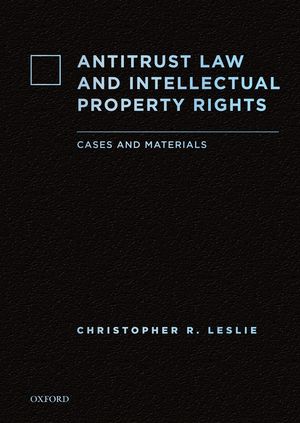
In Antitrust Law and Intellectual Property Rights: Cases and Materials Christopher R. Leslie describes how patents, copyrights, and trademarks confer exclusionary rights on their owners, and how firms sometimes exercise this exclusionary power in ways that exceed the legitimate bounds of their intellectual property rights.
Leslie explains that while substantive intellectual property law defines the scope of the exclusionary rights, antitrust law often provides the most important consequences when owners of intellectual property misuse their rights in a way that harms consumers or illegitimately excludes competitors.
Antitrust law defines the limits of what intellectual property owners can do with their IP rights. In this book, Leslie explores what conduct firms can and cannot engage in while acquiring and exploiting their intellectual property rights, and surveys those aspects of antitrust law that are necessary for both antitrust practitioners and intellectual property attorneys to understand.
This book is ideal for an advanced antitrust course in a JD program. In addition to building on basic antitrust concepts, it fills in a gap that is often missing in basic antitrust courses yet critical for an intellectual property lawyer: the intersection of intellectual property and antitrust law. The relationship between intellectual property and antitrust is particularly valuable as an increasing number of law schools offer specializations and LLMs in intellectual property.
This book also provides meaningful material for both undergraduate and graduate business schools programs because it explains how antitrust law limits the marshalling of intellectual property rights.